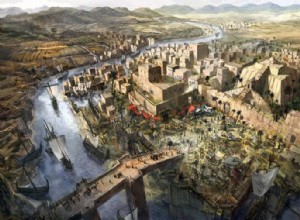The Treaty of Verdun of 843 put an end to the conflict between the three sons of Louis I the Pious for the possession of the Frankish Empire built by their grandfather Charlemagne. According to the terms of this agreement, the Empire was divided into three parts, effectively putting an end to the br




